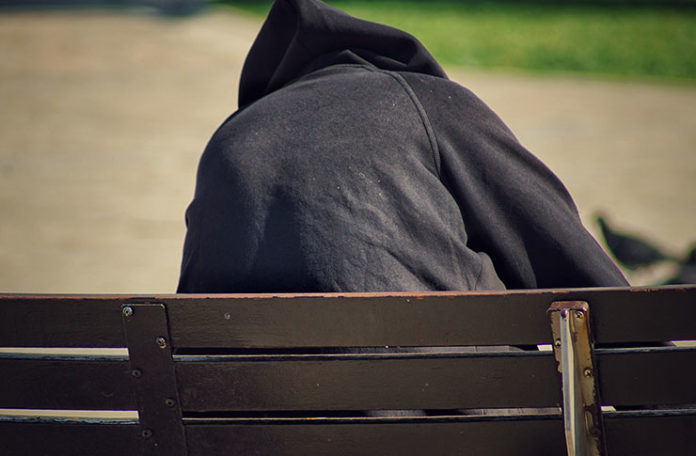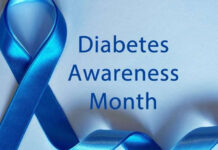
83% of Canadians Report One Or More Symptoms of Depression With Many Turning To Substances To Cope With Negative Emotions During COVID-19 Pandemic, According to Field Trip Health’s First Annual “State of Mind” Survey.
Field Trip Health Ltd., a leader in the development and delivery of psychedelic therapies, released the findings of a survey that revealed how Canadians are feeling, how they are coping, and what they are doing to feel better amidst the COVID-19 pandemic. After nearly 15 months of rolling global lockdowns due to the COVID-19 pandemic, it is to no one’s surprise that the survey results show a nation in the depths of a mental health crisis.
Key Findings On Current Mental Health: Depressed and Unaware
So depressing in fact, in the last two weeks (prior to the survey), more than half of Canadians felt down, depressed, or hopeless (56%) and felt little interest or pleasure in doing things (59%), while nearly three-quarters felt tired or had little energy (72%).
The survey also found that:
• The impact of the pandemic fallout is not being borne equally:
◦ Women are more likely than men to indicate less than ideal mental states (with 30% describing their current mental health as either fair or poor, compared to 20% of men).
◦ Younger Canadians are also more likely to be experiencing the most negative feelings:
◦ 34% of 18-24 year olds
◦ 26% of 25-34 year olds
◦ 32% of 35-49 year olds
◦ 25% of 50-64 year olds
◦ 12% of 65+ year olds
These negative feelings are so severe that in the two weeks prior to this survey alone, nearly one in four Canadians (23%) have felt that they would be better off dead or thought of injuring themselves.
Canadians Coping Mechanisms
Unsurprisingly, the survey also revealed that Canadians have turned to a number of different coping mechanisms to deal with the negative thoughts or emotions, with drugs and vices being a key source of respite for many.
In particular, of those using the following to cope:
• Alcohol and Cannabis. Half have increased their cannabis usage (50%) and alcohol consumption (44%).
• Screen Time. Almost three quarters have increased their social media usage (72%) and two thirds have increased their television consumption (67%).
• Pornography. More than one in three (40%) have increased their pornography consumption.
• Gambling. More than half (53%) have increased their gambling.
• Overeating. Almost three-quarters (70%) have increased their excess consumption of food.
• Prescription Medication. One in four (25%) respondents reported an increase in the use of prescription medicine since the start of the pandemic. Younger Canadians were also more likely to report an increase in use of prescription medications:
◦ 41% of 18-34 year olds
◦ 25% 35-49 year olds
◦ 25% of 50-64 year olds
◦ 17% of 65+ year olds
What Canadians Are Willing to Do To Feel Better
Despite much of the doom and gloom reflected in the survey, there was one silver lining: nearly four in ten Canadians said they are likely to seek professional help in the future to help support their mental health with 39% of Canadians likely to seek a therapist to support their mental health.
And even though 76% of Canadians reported never having tried psychedelics, one in three Canadians (34%) would support the use of psychedelic-assisted therapies after a description of the process, and 20% would be open to trying psychedelic therapies with professional support, with an additional 25% curious to learn more about it.
Those that expressed hesitancy in trying psychedelic-assisted therapies, did so because they do not know enough about it with one in three (34%) stating that they didn’t know enough about it or were afraid of the possible side effects (34%).
“Canada is recognized as one of the most forward-thinking, equitable countries in the world”, said Ronan Levy, Co-founder and Executive Chairman of Field Trip. “However, the strain COVID-19 is causing on our mental and emotional well-being is shining a light on areas where we can improve, specifically options for mental health care. My hope is that all Canadians, including politicians and regulators, will continue to educate themselves, and their peers on all of the options available to them, including the incredible promise of psychedelic-assisted therapies”.
Recent studies published in the New England Journal of Medicine and Nature Medicine suggest that psychedelic-assisted therapies using psychedelic molecules such as psilocybin and MDMA are as good, and very likely orders of magnitude better, than conventional treatments for depression and post-traumatic stress disorder. Other studies are investigating the use of psychedelics and psychedelic-assisted therapies for the treatment of eating disorders such as anorexia, substance use disorders, migraines, cluster headaches and even Alzheimer’s disease.
“This data revealed in this survey isn’t shocking to me”, said Dr. Mike Dow, a certified Psychedelic Assisted Therapy Expert. “Canada’s mental health system has been under strain for years and the COVID-19 pandemic only exacerbated its issues. Psychedelic-assisted therapy using ketamine, which is a legal, Health Canada approved drug, is a way in which we can help those who are bearing the brunt, or simply just not able to cope, with fallout of the pandemic, with a powerful, safe and immediately available treatment option.
With 6 locations operating (Toronto, New York, LA, Chicago, Atlanta and Houston), and 6 more under construction (Amsterdam, San Diego, San Carlos, Seattle, Washington DC and Fredericton), Field Trip has become one of the largest providers of psychedelic therapies in the world with clinics.











